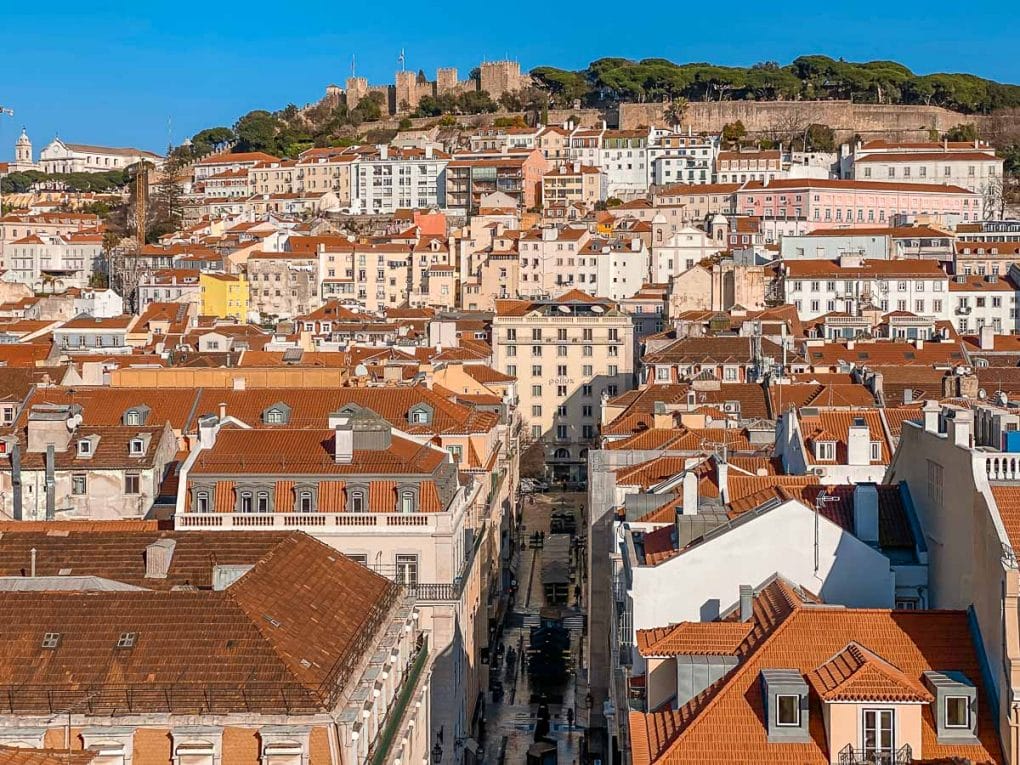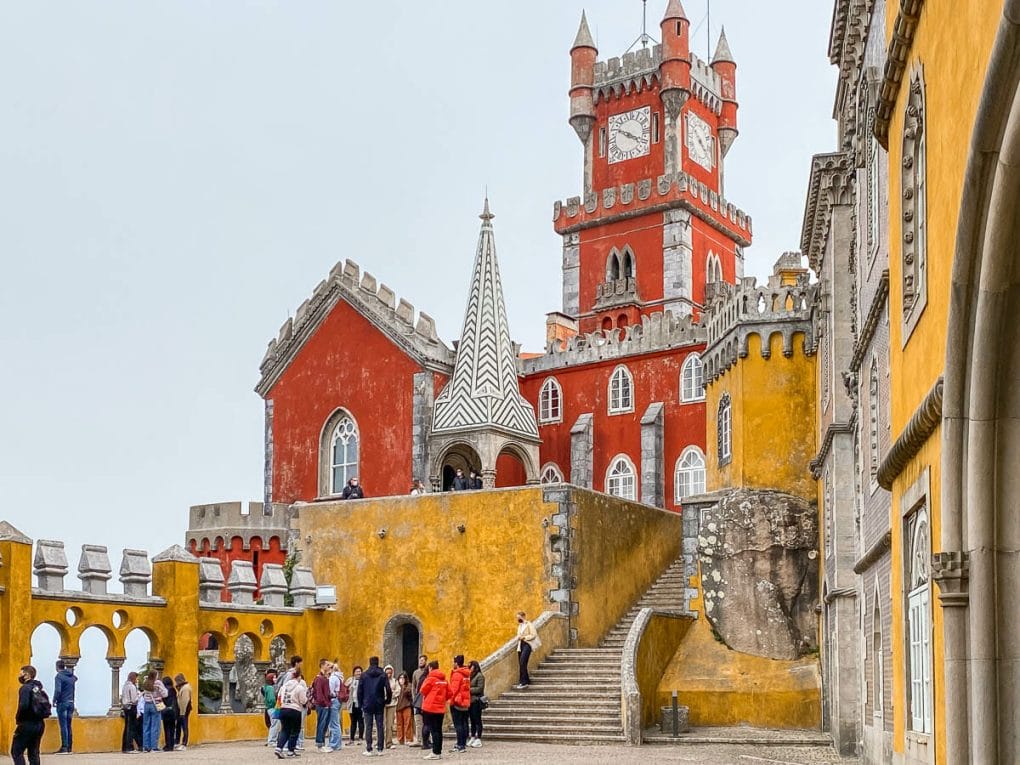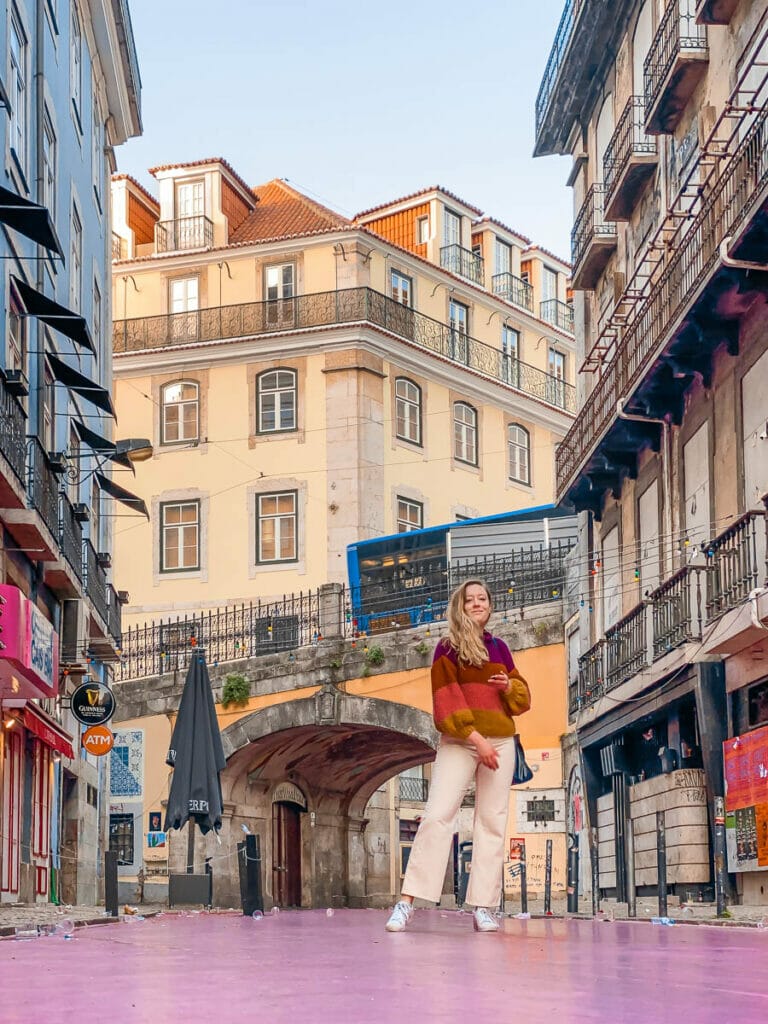Traveling to Lisbon in winter is a cheaper alternative to summer, and it doesn’t get the credit it deserves!
As an avid budget traveler, I’ve learned that one of the best ways to save money is pretty simple: travel during shoulder season. And my recent February trip to Lisbon proved that sometimes traveling in the winter isn’t so bad.
Portugal’s locale in Southern Europe sees temperate winters and 300 sunny days every year. And Lisbon, the country’s capital city, is located on the central coast, meaning it offers some pretty nice weather year-round.
During my visit, temperatures were pleasant, the sun shone my whole 3.5 days, and I got to explore some of Portugal’s most popular attractions with little crowds. It was an absolute dream.
Read on to learn just how wonderful visiting Lisbon in winter truly is!
This post may contain affiliate links, meaning at no additional cost to you, if you click my links and make a purchase, I may earn a small commission. Learn more on my disclosure page. Thank you for your support!
Is Lisbon worth visiting in winter?
Yes! For many reasons, Lisbon is worth visiting in the winter! That’s why I’m writing this post 😉 And here’s a rundown of why exactly I feel this way.
Read More: A Perfect Lisbon Itinerary: How to See Lisbon in 3 Days

4 Reasons Why You Should Visit Lisbon in Winter
Here are some straight up facts about Lisbon that explain why it’s such a great place to visit in Europe in winter!
1. It’s way cheaper
I’ve already mentioned this, but it’s worth saying again – winter in Lisbon is less expensive. How so? Flights and hotels are generally a lot lower than summer prices, and those are two of the biggest expenses on any trip.
In winter, prices can be as low as $50/night for a mid-range hotel, and Ryanair offers flights as low as $25. When I checked summer prices, they were at least double this, often even more.
2. There are fewer crowds
As one of Europe’s hottest countries, many people visit to soak up some beach time in the summer. As fantastic as a trip to the beach is, this does mean that Lisbon is a lot more crowded in the summer as more people come to take advantage of the heat!
More people visiting a place isn’t always bad, but popular attractions like Sintra’s Pena Palace can become overwhelmingly crowded. See the magic of having a place nearly all to yourself by coming in the
3. To experience the unique things to do in Lisbon in winter
If you love winter holidays, visiting Lisbon during Christmas and New Years offers a unique cultural glimpse you can’t get any other time of year! Here’s some ways to experience winter in Lisbon:
- Christmas markets may be traditionally attributed to Germanic countries, but they’re a fun thing to do in Lisbon in winter too!
- Celebrate the new year and party with locals in Praça do Comércio Square and by watching the fireworks over the Tagus River. The Portuguese celebrate the new year by banging pots and pans together so keep your eyes (and ears) peeled for that!
- São Silvestre Run is a 10km organized run every year on Dec 31. The route takes runners through downtown Lisbon celebrating the new year.
4. Temperatures are still pleasant
There’s no denying that a country’s summer months are almost always the best time to visit. And admittedly I hate the cold and try to avoid traveling in the winter when possible.
But Portugal’s winter months are amazingly pretty warm, in my opinion. And although it’s typically rainier in the winter, the country sees less rain and higher temps on average than other European countries, making it one of Europe’s best places to visit in winter.

So, what is Lisbon winter weather like?
December in Lisbon reaches temps between 49 to 59, with an average rainfall of 10 days.
January is regarded as Lisbon’s coldest month and sees temperatures between 47 and 59, with an average rainfall of 10 days.
February weather signals the beginning of spring, and the city starts to get a little warmer. Temperatures in Lisbon in February range between 48 to 61, with an average rainfall of 8 days.
I visited in February and had blue skies, sunshine, and perfect temperatures for walking around in jeans and a light sweater: my ideal weather! It helped that I got lucky and had temps around 65+!

More Things to Do in Lisbon in Winter
Besides the unique winter events in Lisbon listed above, all of Lisbon’s attractions are fair game in the winter! Some of the city’s top attractions include:
- São Jorge Castle: 8th-century landmark that offers fantastic city views from above.
- Belem Tower: a medieval fortress on the coast that you can climb and take in ocean views.
- Cultural tours: like wine tasting, Portuguese food tour, or check out a traditional Fado music show.
- Time Out Lisbon Market: a cool marketplace where you can grab tapas, baked goods, and wine.
- Lisbon’s lookout points: Catching the sunset from one of Lisbon’s many lookout points or Miradouros (like Portas do Sol) is a fantastic thing to do in Lisbon.
Read More: 30 Best Things to Do in Lisbon, Portugal

What to Wear in Lisbon in Winter
When packing for Lisbon in winter, you have to prepare for warm temperatures in the middle of the day but also cool and wet weather in the mornings and evenings.
I recommend packing pants or jeans, long dresses/skirts and tights, light sweaters and tops, and a light jacket. Unless you get cold easily, you most likely don’t need typical winter gear like gloves and scarves, but an umbrella or rain jacket is a good idea too.
I wore pants and thick sweaters on my trip, and some days, I got pretty hot after climbing Lisbon’s hills. I even wore a long dress one day without tights and did not need my sweater in the middle of the day.

Where to Stay in Lisbon + Best Lisbon Hotels
When trying to cross off the best things to do in Lisbon, Portugal, it’s best to stay in the city center. But since Lisbon is a walkable city, you can’t go wrong with staying in any of the city’s central districts. So, here’s where to stay + some recommendations of the best hotels in Lisbon.
Or, if you’re looking for cheap hotels in Lisbon that’ll help stretch your travel budget I have a guide for that too!
Baixa / Rossio (City Center)
Baixa / Rossio is the very center of the city and conveniently in the middle of many of Lisbon’s top attractions. Additionally, the Rossio metro and train station offers an easy route between the airport to downtown and Lisbon to Sintra.
Baixa hotel recommendation: Browns Central Hotel (stylish, great location) or Yes! Lisbon Hostel (rated best hostel in the world twice)
Alfama (Historic district)
Alfama is Lisbon’s old quarter nested immediately to the east of downtown. It’s famous for Fado music, charming narrow streets, and pretty lookout points. Much of the neighborhood is at a steep incline which means lots of walking up hills.
Alfama hotel recommendation: Memmo Alfama Design Hotel (boutique, excellent city views)
Bairro Alto/Chiado (“Upscale” neighborhood)
Bairro Alto / Chiado is Lisbon’s higher-end district with excellent eateries and is close to the city’s best shopping. It’s located immediately north of downtown.
Bairro Alto hotel recommendation: The Lumiares Hotel & Spa (luxury, modern)
Arroios / Avenida da Liberdade (Quiet and Shopping)
Arroios / Avenida da Liberdade is located north of Bairro Alto, which means it’s probably about a 25+ minute walk from downtown. But it’s still a nice place to stay and usually offers a more reasonable nightly rate.
Avenida de Liberdade hotel recommendation: H10 Duque de Loule (boutique, beautiful rooftop bar)

